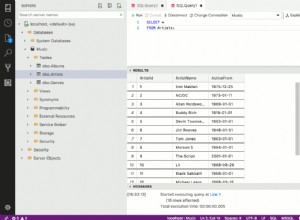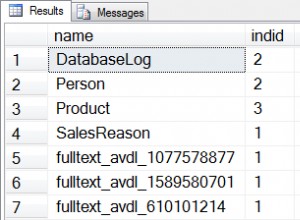Se hai bisogno del passaggio intermedio:
SELECT unnest(string_to_array(a, ' '))::float8
-- or do something else with the derived table
FROM unnest(string_to_array('3.584731 60.739211,3.590472 60.738030', ',')) a;
Questo è più dettagliato di regexp_split_to_table()
, ma potrebbe essere comunque più veloce perché le espressioni regolari sono in genere più costose. (Prova con EXPLAIN ANALYZE .)
Ho prima diviso in ',' e poi su ' ' - la sequenza inversa di ciò che descrivi sembra più adeguata.
Se necessario, puoi racchiuderlo in una funzione PL/pgSQL:
CREATE OR REPLACE FUNCTION public.split_string(_str text
, _delim1 text = ','
, _delim2 text = ' ')
RETURNS SETOF float8 AS
$func$
BEGIN
RETURN QUERY
SELECT unnest(string_to_array(a, _delim2))::float8
-- or do something else with the derived table from step 1
FROM unnest(string_to_array(_str, _delim1)) a;
END
$func$ LANGUAGE plpgsql IMMUTABLE;
O solo una funzione SQL:
CREATE OR REPLACE FUNCTION public.split_string(_str text
, _delim1 text = ','
, _delim2 text = ' ')
RETURNS SETOF float8 AS
$func$
SELECT unnest(string_to_array(a, _delim2))::float8
FROM unnest(string_to_array(_str, _delim1)) a
$func$ LANGUAGE sql IMMUTABLE;
Rendilo IMMUTABLE per consentire l'ottimizzazione delle prestazioni e altri usi.
Chiama (usando le impostazioni predefinite fornite per _delim1 e _delim2 ):
SELECT * FROM split_string('3.584731 60.739211,3.590472 60.738030');
Oppure:
SELECT * FROM split_string('3.584731 60.739211,3.590472 60.738030', ',', ' ');
Il più veloce
Per prestazioni ottimali, combina translate()
con unnest(string_to_array(...)) :
SELECT unnest(
string_to_array(
translate('3.584731 60.739211,3.590472 60.738030', ' ', ',')
, ','
)
)::float8




